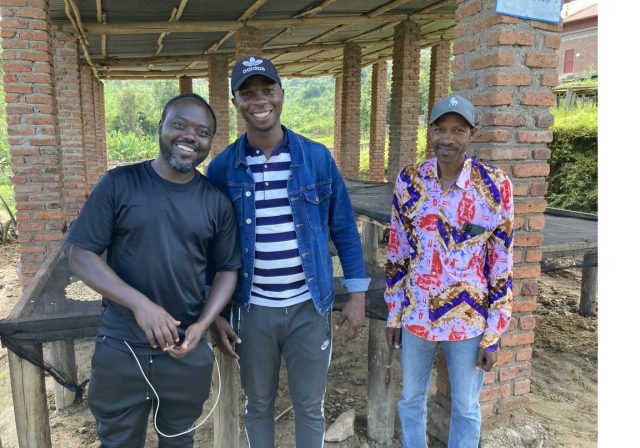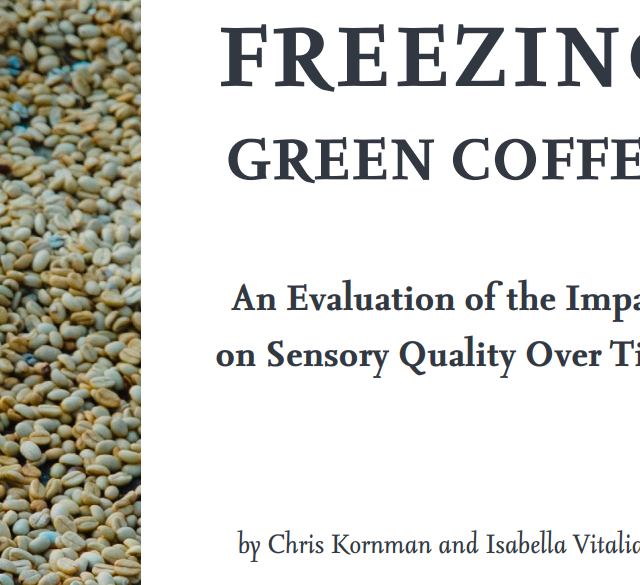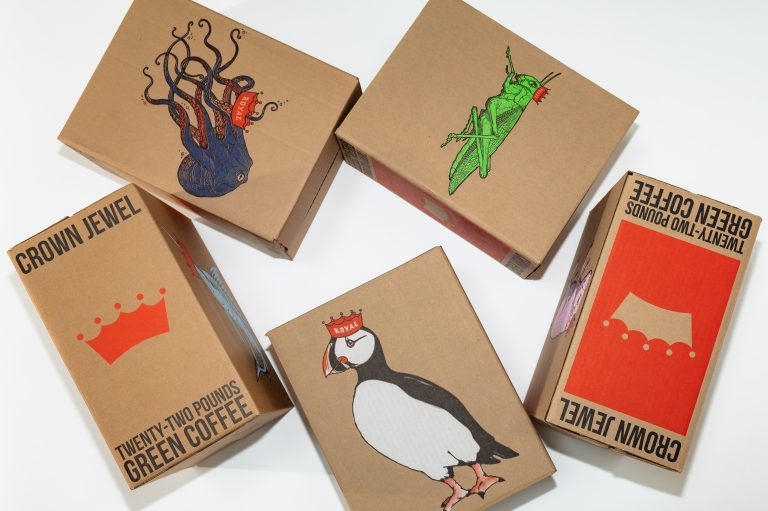Celebrating Coastal Coffee from Lake Kivu: Chris shares his recent trip to the Coocamu Coop.
It’s difficult not to be transported to some kind of other world when visiting Coocamu (pronounced with an emphasis on the 2nd syllable, “coo-CA-mu”). There is a road to the station, but the preferred way to visit, if like me you’re coming from a hotel in nearby Kibuye, is by boat.
Lake Kivu on Rwanda’s western edge is a clear, serene, deep lake separating the country from the Democratic Republic of Congo. Surface level at the lake is 1460 masl, and coffee grows all along the hillsides that rise up from the coastline. The lake is dotted with innumerable small islands, and boasts a wide array of unique bird life but relatively little other animal activity. A few species of introduced fish are served in local restaurants, like Tilapia or the tiny Sambuza sardines. Otherwise, it’s a pristine, glossy body of water in a field of green-clad clay mountains that rise irregularly along its shores in all directions.

My introduction to Coocamu is through Ikawa House, Rwanda’s emergent expert firm in quality control. Its cofounders, Laetitia Mukandahiro and Uzziel Habimana, have around 40 years of combined coffee quality experience, and formed the company mid-pandemic as a consultation, marketing, and export group. My history with both individuals predates Ikawa House, and we’ve a long-established rapport with excellent cupping calibration.
Uzziel joins me on the boat ride, which lasts a brisk 45 minutes from Kibuye’s shores to the headlands near Coocamu, where fisherfolk have begun to lay out the morning’s catch. It’s a relatively small take; Uzziel explains to me that the lake goes through periodic restrictions to prevent overfishing. Sambuzas aren’t available at the local restaurants the week of my visit, unfortunately, which is a shame because they pair so well with the local Mützig lager.
After a climb up the hillside, which I’m confident puts us at well over 1500 masl, we’re met by Ezra, Coocamu’s manager, and Ernest, its agronomist. We survey the sleepy station, a small collection of raised drying beds, mostly vacant, and empty fermentation tanks. It’s near the end of the season, and the word from everywhere is that volumes are down substantially.

Royal Coffee bought 300 bags of 2022 harvest, the lion’s share of the cooperative’s production. They’ll be lucky to export 100 bags from 2023’s crop. The coop is also small in membership, just under 400 contributing farmers. The remote location and relative rarity of the coffee makes me even more impressed at its quality.
The three lots we have, day-lot outturns checked for quality at the washing station and again at Ikawa House before they were sampled to us for sale, all have some common characteristics. Each has a signature brightness, we noted fresh lemon and orangy citrus notes. There’s a distinctive balance between the acidity and sweetness, each coffee anchored by a marzipan and caramelly flavor base, accented by cacao nib and sweet cinnamon. We picked up some sweet herbal flavors like rosemary and fresh basil. The coffee is effortless drinkable, a warming comfort coffee perfect for drip and with enough zest and character to produce a unique cold brew as well.
Special online promotion: Buy 5 bags of these single farmer Fair Trade Rwanda lots and get a 6th bag free with code: 5BAGS
You can shop all of Royal’s Coocamu offerings here.
29211 Rwanda FT Coocamu Farmer Group 2 Lot 6: Dense and sweet with notes of kumquat, eucalyptus, and cake.
29213 Rwanda FT Coocamu Farmer Group 3 Lot 4: Clean, with citrus zest and nougat flavor.

Coocamu washing station’s drying tables

Uzziel Habimana (Ikawa House Cofounder), Ezra (Coocamu Station Manager) & Ernest (Coocamu Agronomist)

The shoreline below Coocamu cooperative, including red fishing nets and traditional fishing boats

The view from Lake Kivu, en route to Coocamu

The Coocamu Crew


